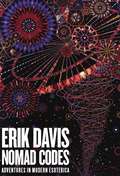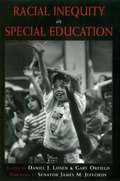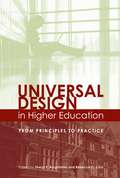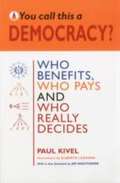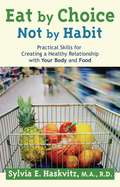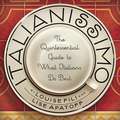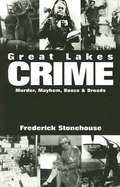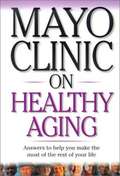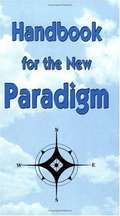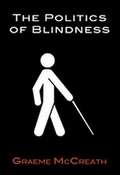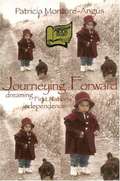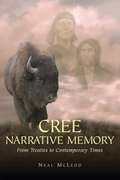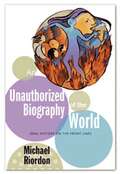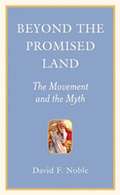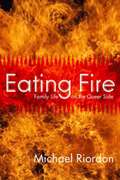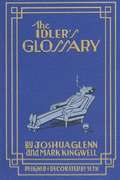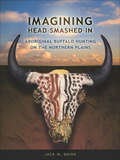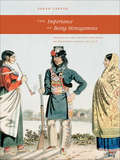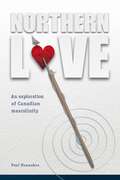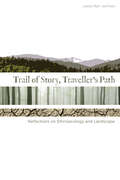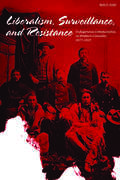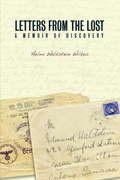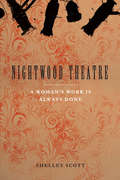- Table View
- List View
Nomad Codes
by Erik Davis Susan WillmarthIn these wide-ranging essays, Erik Davis explores the codes-spiritual, cultural, and embodied-that people use to escape the limitation of their lives and enrich their experience of the world. These include Asian religious traditions and West African trickster gods, Western occult and esoteric lore, postmodern theory and psychedelic science, as well as festival scenes such as Burning Man (of which Davis is the best-known chronicler). Articles on media technology further explore themes Davis took up in his acclaimed book Techgnosis, while his profiles of West Coast poets, musicians, and mystics extend the California terrain he previously mapped in The Visionary State.Whether his subject is collage art or the "magickal realism" of horror writer H.P. Lovecraft, transvestite Burmese spirit mediums or Ufology, tripster king Terence McKenna or dub maestro Lee Perry, Davis writes with keen yet skeptical sympathy, intellectual subtlety and wit, and unbridled curiosity.The common thread running through all these pieces is what Davis calls "modern esoterica," which he describes in his preface as a 'no-man's-land located somewhere between anthropology and mystical pulp, between the zendo and the metal club, between cultural criticism and extraordinary experience, whether psychedelic, or yogic, or technological." Such an ambiguous and startling landscape demands that the intrepid adventurer shed any territorial claims and go nomad. Davis wanders with sharp eyes and an open mind, which is why Peter Lamborn Wilson calls him "the best of all guides to modern American spirituality."
Racial Inequity in Special Education
by Gary Orfield Daniel J. LosenAn illuminating account of a widespread problem that has received little attention, Racial Inequity in Education sets the stage for a more fruitful discussion about special education and racial justice.
Universal Design in Higher Education: From Principles to Practice
by Sheryl Burgstahler Rebecca CoryUniversal design (UD) has a rich history in applications to commercial products and architecture and is now being applied to instruction and student services. UD holds promise for making educational products and environments more inclusive of all students, faculty, staff, and visitors. This chapter is an overview of topics covered in this book, including the definition and principles of UD, the process of UD, and applications of UD in higher education (UDHE).
You Call This a Democracy?: Who Benefits, Who Pays, Who Really Decides?
by Paul KivelA penetrating look at the U. S. ruling class - a rich and powerful portion of the population who own tremendous amounts of wealth and who benefit from the way that decisions get made in this country. A look as well at an even smaller group, the power elite - 7,000 to 10,000 (predominately) white men - who make many of the decisions that affect our everyday lives. Most of the time they decide, they and the ruling class benefit, and we pay in our wages, our taxes, our health, the quality of our housing, and often with our lives. The book is carefully researched and referenced, and filled with numerous examples and illustrations. It is an indispensable resource for every person concerned about the undemocratic concentration of wealth and power in our society. Book jacket.
Eat by Choice, Not by Habit
by Sylvia HaskvitzCombining sound dietary information with the techniques of the Nonviolent Communication (NVC) process, this booklet shifts the focus from simple weight loss to changing the ways readers relate to food and their food choices. Eating is a need, but for those caught in cycles of overconsumption and dieting, it's often a poor attempt to meet other needs, such as emotional fulfillment. When reconnected to actual needs, however, consumption habits turn into nutritional choices, signaling greater freedom. Practical strategies are outlined for breaking out of cycles of eating and becoming aware of one's needs. Rather than being a proscriptive fad diet, the suggestions encourage readers to explore the emotional consciousness that underlies their eating patterns, freeing them to once again enjoy the tastes, smells, and sensations of good eating.
Leadership in Leisure Services: Making a Difference (Third Edition)
by Debra J. JordanLeadership is a process and an experience that impacts all of us in our roles as leaders and as followers. This text presents leadership as a personal journey that takes conscious effort to undertake and develop. Leadership is one of the keystones of successful parks, recreation and leisure services agencies, organizations and programs. How we deal with people,how we interact with fellow staff supervisors, participants, and the general public all make an incredible statement about who we are and what our profession is about. This book is designed to help students of leadership begin, or renew, their personal journey toward leadership.
Italianissimo: The Quintessential Guide to what Italians Do Best
by Louise Fili Lise ApatoffWhat is it about Italy that inspires passion, fascination, and utter devotion? This quirky guide to the Italian way of life, with its fifty witty mini-essays on iconic Italian subjects, will answer that question as well as entertain and delight both real and armchair travelers. Topics range from expressive hand gestures to patron saints, pasta, parmesan, shoes, opera, the Vespa, the Fiat 500, gelato, gondolas, and more. History, folklore, superstitions, traditions, and customs are tossed in a delicious sauce that also includes a wealth of factual information for the sophisticated traveler:• why lines, as we know them, are nonexistent in Italy• why a string of coral beads is often seen around a baby’s wrist• what the unlucky number of Italy is (it’s not thirteen, unless seating guests at a table, when it IS thirteen–taking into account the outcome of the Last Supper)• why red underwear begins to appear in shops as the New Year approaches In addition to the lyrical and poetic, Italianissimo provides useful and indispensable information for the traveler: deciphering the quirks of the language (while English has only one word for “you,” in Italy there are three), the best place to find balsamic vinegar (in Modena, of course), the best gelato (in Sicily, where they first invented it using the snow from Mount Etna). There are also recommendations for little-known museums and destinations (the Bodoni museum, the Pinocchio park, legendary coffee bars).This is a new kind of guidebook overflowing with enlightening and hilarious miscellaneous information, filled with luscious graphics and unforgettable photographs that will decode and enrich all trips to Italy–both real and imaginary
Great Lakes Crime: Murder, Mayhem, Booze and Broads
by Fredrick StonehouseIt may not have been the "Spanish Main" but pirates did sail the Great Lakes as did all manner of thieves and murderers. The great Sweetwater Seas had their fair share of criminal activity. Captains sunk their ships to collect the insurance and honest Hghtkeepers were "done in" for their meager savings! Throughout prohibition the Great Lakes were the back door into America's heartland. Hundreds of boats hauled millions of gallons of illegal booze over the Lakes to wet the dry throats of honest citizens. Although bribes were often paid to assure a safe passage, sometimes bullets flew wild as bootleggers and government agents fought it out on the Inland Seas. On shore, a different kind of vice was practiced where the old saying that "a sailor has a girl in every port" often meant the "girl" insisted on a cash payment. Relive stories of murder, rum running, prostitution and more in this latest book from respected Great Lakes historian Frederick Stonehouse.
All American History, Volume II: The Civil War to the 21st Century Student Reader
by Celeste W. RakesThe book contains a full year’s curriculum in 32 weekly lessons. Each lesson contains three sections examining: the atmosphere in which the event occurred, the event itself, and the impact this event had on the future of America.
Mayo Clinic On Healthy Aging: Answers to Help You Make the Most of the Rest of Your Life
by Edward T. CreaganHealthy aging doesn't occur by accident. This book provides information you can use to successfully manage the aging process and maintain or improve the quality of your living. Inside you'll discover: *How to approach the aging process *How to deal with changes in the way your body looks and works *How to exercise safely and effectively *How to maintain a positive outlook on life *How to nurture your mind and spirit *How to manage your finances *How to secure high-quality health care *How to stay connected with family and friends *How to maintain your independence *How to know when you need help *How to secure help if you need it *Where to go for additional assistance.
Handbook for the New Paradigm
by Bridger House PublicationsThe messages contained in this handbook are intended to lift mankind from the entrapment of the victim consciousness that keeps the level of experience ensnared in fear and frustration. Humanity was intended to live, not in luxury, but in abundance. The information found between these covers will lead all that read and reread with an open mind to the discovery of the truth of who and what they truly are. The end of the search for these answers is provided at last in clarity and conciseness.
The Politics of Blindness: From Charity to Parity
by Graeme Mccreath<P>This book provides a rallying cry so that the voice of users of services can be heard, and both the provision of services can be tailored by and shaped to their needs. <P>The anti-discrimination clause, which I was proud to contribute to in the extension of the Disability Discrimination Act, the creation of the Disability Rights Commission (now part of the Equality and Human Flights Commission) and the Office of Disability inside UK government, has enabled individual and collective experience of inequality and discrimination to be tackled head on.
Journeying Forward: Dreaming First Nations' Independence
by Patricia Monture-AngusQuestioning the ability of political organizations to assist in fully eradicating the oppression of First Nations and their citizens, the author critically reflects on the meaning of "self-government"—and the obstacles as well as solutions to some of its challenges. Concluding that self-government as a goal is too narrow and overly inundated by colonial meanings to be a full solution, Monture-Angus rejects the idea of "self-government" in favor of a much larger idea, independence.
Cree Narrative Memory: From Treaties To Contemporary Times
by Neal McLeodNeal McLeod examines the history of the nêhiyawak (Cree People) of western Canada from the massive upheavals of the 1870s and the reserve period to the vibrant cultural and political rebirth of contemporary times. Central to the text are the narratives of McLeod's family, which give first hand examples of the tenacity and resiliency of the human spirit while providing a rubric for reinterpreting the history of Indigenous people, drawing on Cree worldviews and Cree narrative structures. <p><p> In a readable style augmented with extensive use of the Cree language throughout, McLeod draws heavily on original research, the methodology of which could serve as a template for those doing similar work. While the book is based on the Cree experience of the Canadian prairies, its message and methodology are applicable to all Indigenous societies.
An Unauthorized Biography of the World: Oral History on the Front Lines
by Michael RiordonAn Unauthorized Biography of the World explores the practice of engaged oral history: the difficult, sometimes dangerous work of recovering fragments of human story that have gone missing from the official versions. Michael Riordon has thirty years’ experience as a writer and broadcaster in the field. Readers will encounter a gallery of brave, passionate people who gather silenced voices and lost life stories. The canvas is broad, the stakes are high: the battles for First Nations lands in Canada; environmental justice in Chicago; genocide in Peru; homeless people organizing in Cleveland; September 11/01, and after, in New York City; gay survivors of electroshock in Britain; the struggle to preserve a people’s identity in Newfoundland; peasant resistance to a huge transnational gold mine in Turkey.
Beyond the Promised Land: The Movement and the Myth (Provocations #1)
by David F. NobleIconoclast David F. Noble traces the evolution and eclipse of the biblical mythology of the Promised Land, the foundational story of Western Culture. Part impassioned manifesto, part masterful survey of opposed philosophical and economic schools, Beyond the Promised Land brings into focus the twisted template of the Western imagination and its faith-based market economy. From the first recorded versions of “the promise” saga in ancient Babylon, to the Zapatistas’ rejection of promises never kept, Noble explores the connections between Judeo-Christian belief and corporate globalization. Inspiration for activists and students alike.
Eating Fire: Family Life on the Queer Side
by Michael RiordonEating Fire follows in the steps of Riordon’s popular 1996 book Out our way, on gay and lesbian life in the country (BTL, 1996). This new set of tales examines the range in living patterns and relationships among queer families across Canada. Eating Fire illuminates the rich diversity in which people negotiate their personal and public identities. As in all his writing and radio work, Riordon brings to this book a subtle, direct, and vivid style. For Eating Fire he travelled widely, engaging in significant new research and speaking with hundreds of fascinating people. The resulting book is wanted and needed in classrooms, within queer communities, and among everyone hungry for knowledge about the wide range of Canadian families.
The Idler's Glossary
by Seth Joshua Glenn Mark KingwellFor as long as mankind has had to work for a living, people who work have disparaged those who prefer not to. This glossary playfully explores the etymology and history of hundreds of idler-specific terms and phrases, while offering a foundation for a new mode of thinking about work and labor.
Imagining Head Smashed In: Aboriginal Buffalo Hunting on the Northern Plains
by Jack W BrinkAt the place known as Head-Smashed-In in southwestern Alberta, Aboriginal people practiced a form of group hunting for nearly 6,000 years before European contact. The large communal bison traps of the Plains were the single greatest food-getting method ever developed in human history. Hunters, working with their knowledge of the land and of buffalo behaviour, drove their quarry over a cliff and into wooden corrals. The rest of the group butchered the kill in the camp below. Author Jack Brink, who devoted 25 years of his career to “The Jump,” has chronicled the cunning, danger, and triumph in the mass buffalo hunts and the culture they supported. He also recounts the excavation of the site and the development of the Head-Smashed-In Buffalo Jump Interpretive Centre, which has hosted 2 million visitors since it opened in 1987. Brink’s masterful blend of scholarship and public appeal is rare in any discipline, but especially in North American pre-contact archaeology.
The Importance of Being Monogamous: Marriage and Nation Building in Western Canada in 1915
by Sarah CarterSarah Carter reveals the pioneering efforts of the government, legal, and religious authorities to impose the “one man, one woman” model of marriage upon Mormons and Aboriginal people in Western Canada. This lucidly written, richly researched book revises what we know about marriage and the gendered politics of late nineteenth century reform, shifts our understanding of Aboriginal history during that time, and brings together the fields of Indigenous and migrant history in new and important ways.
Northern Love: An exploration of Canadian Masculinity
by Paul NonnekesIn Northern Love, Paul Nonnekes proposes a conception of love suggestive of a distinctive model of Canadian masclinity. He pursues debates in psychoanalysis and cultural theory in relation to two representative male characters in novels by Rudy Wiebe (A Discovery of Strangers) and Robert Kroetsch (The Man from the Creeks</em). Ranging from debates on the Hegelian master-slave dialectic to the Lacanian Name of the Father, and from Butler's strange gender to Zizek's subjective awareness of lack, Nonnekes probes the two novels and their main characters, eliciting an evolving conception of love characteristic of the Canadian cultural imaginary.
Trail of Story, Traveller’s Path
by Leslie Main JohnsonTrail of Story examines the meaning of landscape, drawn from Leslie Main Johnson's rich experience with diverse environments and peoples, including the Gitksan and Witsuwit'en of northwestern British Columbia, the Kaska Dene of the southern Yukon, and the Gwich'in of the Mackenzie Delta. With passion and conviction, Johnson maintains that our response to our environment shapes our culture, determines our lifestyle, defines our identity, and sets the tone for our relationships and economies. With photos, she documents the landscape and contrasts the ecological relationships with land of First Nations peoples to those of non-indigenous scientists. The result is an absorbing study of local knowledge of place and a broad exploration of the meaning of landscape.
Liberalism, Surveillances and Resistance
by Keith D. SmithIndigenous communities in Western Canada, 1877-1927
